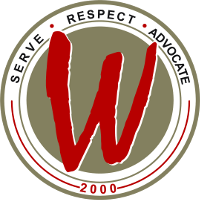WesCare provides a variety of services for persons with Intellectual and Developmental Disabilities (I/DD Services). For more information on our service offerings, please contact us.
Our Service Offerings
In-Home Skill Building
In-Home Skill Building provides training to enable you to acquire and maintain skills, which support you to be more independent. In-home skill building provides additional support to your family and natural supports and consists of an array of services that are needed to maintain your life in the community. As you gain skills and become more independent, you should need fewer hours of this service. In-home skill building consists of:
- Training and supporting you to develop and maintain personal relationships.
- Skill building to help you learn community living skills, such as shopping, recreation, personal banking, grocery shopping, and other community activities.
- Training to help you learn therapeutic exercises, supervision of self-administration of medication, and other services that are essential to your health care at home, including transferring, ambulation, and using special mobility devices
- Transporting you to activities where you are receiving In-Home Skill Building. This service cannot be provided in the home of a direct support employee.
Supported Employment Services, Initial & Long Term Follow-Up
Supported Employment Services provide you with assistance in choosing, acquiring, and maintaining a job in settings with people who do not have disabilities.
Supported Employment Services include:
- Pre-job training to prepare you to engage in work that may include career counseling; job shadowing; assistance in the use of educational resources; training in resume preparation; job interview skills; and assistance in learning skills necessary for keeping the job.
- Training and support to obtain employment in a group such as an enclave or mobile crew (groups of workers with disabilities who work in a business in the community).
- Assisting you in developing and operating a small business that you own.
- Training and support to complete job training or maintaining employment.
- Transportation between work/home or between activities related to employment.
- Consultation with your employer to address any problems or needs you may have.
Residential Supports
Residential Supports consist of individually designed training activities, assistance and supervision. Residential Supports are provided in licensed/unlicensed community residential settings that include group homes, and alternative family living homes. Residential Supports include:
- Habilitation Services that assist you in obtaining, improving and retaining self-help skills, general household management; meal preparation skills; personal financial management skills; and socialization skills.
- Assistance and support in activities of daily living to ensure your health and safety.
- Transportation to/from your residence and community activities/licensed day program.
Personal Care Services
Personal Care Services help you with eating, bathing, dressing, personal care, hygiene, and other activities of daily living. Personal care services also help you to maintain skills gained during training services. This service also includes housekeeping chores, such as bed making, dusting, and vacuuming, if these are incidental to your care and are essential to your health and welfare rather than your family’s needs. Personal Care Services also include assistance with the monitoring of your health and assisting you with transferring, walking, and use of special mobility devices.
Community Networking Services
Some of the things that Community Networking Services can help you do:
- Participate in classes at the community college, for example take a class in photography.
- Participate in community classes to develop hobbies, leisure, or cultural interests. For example, taking a knitting class, where you would meet other people. These classmates may later decide to meet weekly at a community center where everyone could work on their own knitting project at the same time.
- Perform volunteer work such as stocking food at the Food Pantry.
- Join a group that meets on a regular basis in the community, for example, a group that meets at a coffee shop every morning to discuss community events.
- Learn to use public transportation.
- Take classes on self-determination and participating in a self-advocacy group.
- If you are a child, provide staffing support for you to go to an after-school program that is designed for children who do not have disabilities.
- Pay the tuition for you to attend a class or to register for a conference (but not the hotel, meals, transportation to the conference or day care fees) up to $1,000 per year. This does not include child care fees, overnight camps, fees for summer programs whose primary purpose is child care, or memberships.
Respite: Individual
Respite Services provide periodic support and relief to your primary caregiver(s) from the responsibility of your care. This service enables them to meet or participate in planned or emergency events, and to have planned time for him/her and/or family members.
Respite may include services in your home and services in the home of caregivers or facilities. Respite Services can include overnight, weekend care; emergency or continuous care up to 10 consecutive days. The primary caregiver is the person principally responsible for your care and supervision and must maintain his/her primary residence at your address. Your Respite Care Provider cannot provide care for your siblings or any other family member while providing respite services for you.


